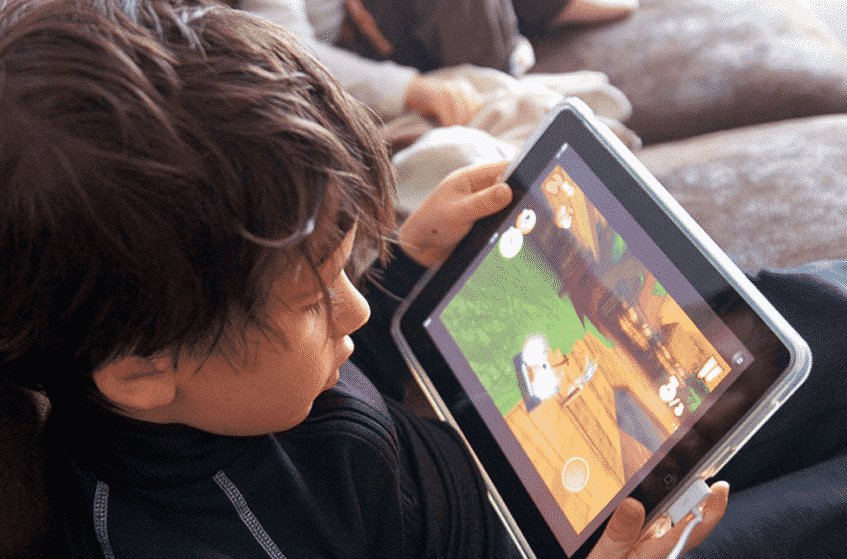Is Excessive Mobile App Gaming A Mental Disorder? 2026
Is excessive mobile app gaming a mental disorder? You may notice your kids spending long hours playing mobile games, sometimes ignoring important things like eating or engaging with the family. This could make you wonder if they’re becoming addicted to gaming. It’s also worth considering whether excessive mobile app gaming might be developing into a mental disorder that impacts their growth. If your child is diagnosed with a gaming disorder, a treatment plan may be needed.
Research published in JAMA Pediatrics (2022) found that 20% of children who play mobile games for more than 3 hours daily exhibit signs of gaming addiction, including anxiety, depression, and social isolation. These behaviors are increasingly common among children aged 10-14.
A 2019 study by the National Institutes of Health showed that children who engage in mobile gaming for extended periods are at greater risk of developing behavioral issues. The study highlighted that 35% of children with gaming addiction experienced impaired academic performance and poor social skills.
What Is Gaming Mental Disorder?
The World Health Organization (WHO) has officially recognized “gaming disorder” as a mental health condition. This disorder is part of the latest global health classification, which provides standards for diagnosing diseases and health conditions. Here’s how to identify and diagnose a gaming disorder:
Diagnosis by a Health Professional
Like any other health issue, only qualified professionals can properly diagnose a gaming disorder. They look for signs that gaming is taking priority over other activities, with children spending increasing amounts of time playing games despite the negative effects. If left unchecked, gaming can disrupt sleep, health, and other aspects of life.

Early Signs to Watch For
If you notice your child spending more time on mobile games, it’s crucial to act quickly. Early intervention can prevent gaming addiction from developing. Delaying action until the addiction is deep-rooted can make it much harder to address.

Addiction in Children
While playing games itself isn’t harmful, its addictive qualities can be. Similar to substance abuse or gambling addiction, gaming addiction can have serious consequences. Kids with gaming disorder may continue playing even as it negatively impacts their relationships, sleep, and overall health.

How to Prevent Your Child from Gaming Mental Disorder?
Preventing gaming-related mental disorders in children is essential to ensure they grow up with a balanced relationship with technology. While gaming in moderation is harmless, excessive gaming can lead to issues such as addiction, anxiety, and social isolation. Here are some strategies to help you prevent your child from developing a gaming mental disorder:
Set Clear Time Limits
Create and enforce daily screen time limits for gaming. Ensure that your child knows when it’s time to stop playing, and set specific rules regarding the maximum gaming hours per day or week. Use parental control apps to monitor and limit their screen time.
Encourage Healthy Routines
Encourage a balanced lifestyle where gaming is just one part of the day. Integrate activities like outdoor play, sports, reading, and family time into their routine. Physical activity helps reduce the chances of gaming addiction and promotes mental health.
Create Screen-Free Zones and Times
Establish screen-free areas in your home, such as the dining table or bedrooms, where gaming is not allowed. Set specific hours, like mealtimes or before bed, as screen-free times to encourage family interactions and healthy sleep patterns.
Monitor Gaming Content
Ensure the games your child plays are age-appropriate and do not promote negative behavior or excessive gaming. Some games are designed to be addictive, so choose those that offer a balanced approach and limit in-game purchases that can escalate spending and game time.
Foster Open Communication
Talk to your child regularly about their gaming habits. Have open discussions about the effects of excessive gaming and how it can impact their health, sleep, and relationships. Let them know that they can always come to you if they feel overwhelmed by their gaming behavior.
Use iKeyMonitor to Monitor Mobile App Usage and Prevent Gaming Mental Disorder
Excessive mobile gaming, especially among children, has become a rising concern. With many kids spending more time on mobile games, it can lead to gaming addiction, affecting their physical health, social interactions, and mental well-being. Gaming disorders are now officially recognized by the World Health Organization (WHO) as a mental health condition. Fortunately, as a parent, you can take steps to monitor and manage your child’s gaming habits using tools like iKeyMonitor. Here’s how iKeyMonitor can help prevent gaming-related mental health issues:
Track Game Usage and Screen Time
With iKeyMonitor, you can track how much time your child spends playing mobile games. You can set daily or weekly limits, helping ensure they don’t play for hours on end. This reduces the risk of them becoming overly absorbed in their games and neglecting other important aspects of life, like schoolwork and sleep.
Monitor In-App Activity
Many mobile games have social features where kids can chat with others. iKeyMonitor lets you monitor these interactions, so you can make sure they’re not exposed to inappropriate content or talking to strangers. If your child is playing multiplayer games, this feature can help you ensure they’re safe.
Limit Access to Certain Games or Apps
Sometimes, kids become fixated on certain games. With iKeyMonitor, you can block specific apps entirely, limiting your child’s access if you feel they are spending too much time on a particular game. You can also set restrictions to avoid in-game purchases that can lead to financial or behavioral issues.
Capture Screenshots in Real Time
iKeyMonitor automatically takes screenshots of your child’s device at intervals. This gives you a snapshot of what they’re playing and what kind of content they’re exposed to. If they’re spending time on something you’re not comfortable with, you’ll catch it early and can intervene before it becomes a bigger issue.
FAQs About Gaming Mental Disorder
Q1. What is a gaming mental disorder?
Gaming mental disorder happens when gaming takes over a child’s life, affecting their physical, emotional, and social well-being.
Q2. How do I know if my child is addicted to gaming?
Signs of game addiction include neglecting schoolwork, social withdrawal, and playing for hours on end. Apps like iKeyMonitor can help you track their gaming time and notice red flags early.
Q3. What are the effects of gaming addiction on children?
Kids who game excessively can face issues like poor sleep, anxiety, and trouble focusing at school. Using iKeyMonitor to monitor their screen time can help minimize these risks and keep them on track.
Q4. How can I prevent my child from developing gaming addiction?
Set clear limits on gaming time, encourage other activities, and keep the conversation open. iKeyMonitor helps by tracking their gaming behavior and giving you control over screen time.
Conclusion
By taking some simple precautions, you can help prevent gaming mental disorders in your children. Encourage them to engage in real-world activities outside of the screen to stimulate their interests and help them stay away from online games. Parental control apps like iKeyMonitor are useful tools for monitoring online activities, ensuring your children stay safe online.

Tags: excessive mobile app gaming, overcome the gaming disorder
Category: Learning & How to, Parental Control Tips